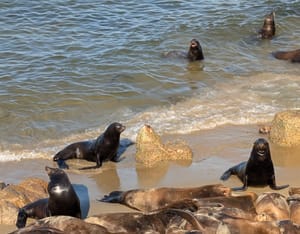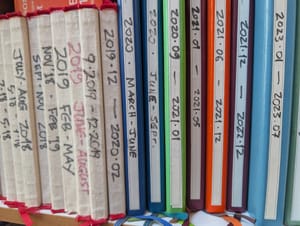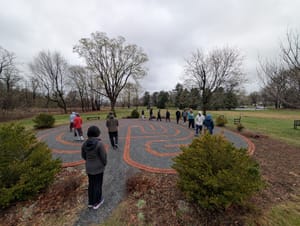I was one of those students who did very well in high school and college, and then, once I graduated, immediately regretted all that diligence.
I knew right away that I should have maybe taken it easier, taken myself less seriously, and been more open to things outside my immediate field of vision. For a long time, my memory of Williams was tinged with frustration and regret.
So when I went to my college reunion a bit more than a month ago, it was a surprisingly emotional experience.
Apart from the predictable emotionalism of seeing old friends, walking around the still-familiar Williams campus, and trying to get my children to understand some fraction of what going to college might actually mean, there was also the surprising feeling of coming to some kind of peace, at last, with what my education left out.
I had spent much of the considerable time since graduation trying to figure out what it was, exactly, that I took from my education–or more specifically, what was worthwhile enough to hang onto. For too long my conclusion was “not much.” I fell early and hard for a particular kind of critical theory that was popular at the time but now seems impossibly dated. (Note: Not this kind of socially useful, Marx-influenced normative critical theory, but the more Derrida-influenced kind of textual analysis. But no more on that: I’m boring you.)
I learned within a few months of graduation that I was unable to represent the main points of what I had studied convincingly in a discussion with anyone who hadn’t already been fully trained in the language of that theory. When you can’t explain something to an outsider, that’s generally a sign that either you don’t understand it, or it’s bullshit, as I would go on to learn as a tech journalist.
In retrospect, I felt like my enthusiasm for this kind of theory, which was of course stoked by a particularly charismatic professor who was its major exponent on campus, blotted out a more balanced kind of liberal education that would have included, say, a broad appreciation of literature, history, and art. I realized I’d spent way too much time trying to impress various teachers. Because I often succeeded at that, it was easy to overlook what I wasn’t doing, which was learning something useful or new. And because those teachers were generally the arrogant asshole type, they never bothered to correct me or guide me toward a more balanced sort of education.
In short, when I graduated I knew a lot of useless theory but had an embarrassingly narrow knowledge of literature, history, or actual people.
I suppose I also had a lingering sense of disappointment that my education hadn’t exactly launched me into a life of responsibility and privilege. One of the unstated benefits of attending a college like Williams is the entrée it gives you into the upper class: the lawyers, executives, and investors who wield so much power in our country. But I never quite knew how to take advantage of that, and was never really comfortable with trying to cash in on that privilege, either. Other classmates went into law school or Wall Street and did very well for themselves, while I spurned all that. Result: Instead of marrying up or talking my way into a lucrative career, I made the decision to become a journalist and remained firmly in the middle class ever after. File under: Missed opportunities.
But back on campus for the reunion, and looking wistfully at the beautiful new library, I realized finally that a few lasting fragments of my education still stuck with me:
A deep curiosity about things in the world seems basic to the way I think and live, along with an unwillingness to take obvious answers for granted. More to the point, I have a sense that most of what we take for granted is probably concealing something. I’m easily annoyed by people who are not curious about what lies behind appearances.
I have a conviction that I can talk with anyone about anything, and that reasonable people can have spirited, informed discussions, learn from one another, and maybe even learn simply by being forced to defend their thinking. I probably err on the side of politeness and conflict avoidance. But I do think it’s worthwhile to talk with those who disagree with you.
I learned how to really listen, and to show people that you are listening, by focusing on what they’re saying and mirroring and responding to them. This education didn’t come from a classroom, but from a student-led peer counseling program I was part of. Active listening is probably my most useful life skill, personally and professionally. Simply paying attention counts for a lot.
Finally, I absorbed some sense of responsibility toward the world. For those to whom much is given, much is required, as the Jesuit fathers hammered into me in high school. Even though I didn’t wind up on the winning side of the Silicon Valley lottery, I’m grateful for the life I have been able to live here at the epicenter of the tech revolution. I could only have led a career like this one with the habits of thinking and learning that I got at Williams.
If I had advice for a younger version of myself, though, it would be this: Grades aren’t everything. Forget the independent study on Hegel (ffs) and skip the senior thesis. Leave time to read things you are interested in, just because they are fun. Don’t drink quite so much. Take Art History 101 and 102. And take up running: Those hill trails are beautiful.



